Mexican Cinema 2024
Some thoughts on the movies from Mexico and/or by Mexican filmmakers I watched in 2024.
NOTE: I went very long on this one so if you read these through your email, everything might look truncated. You may need to navigate to the app or the Substack website to view it properly. I appreciate each and every one of you.
¡Saludos and bienvenidos al año nuevo! The Mexican Cinema journey rolled on once again in 2024 and somehow, against all odds, I managed to watch 101 movies from Mexico and/or by Mexican filmmakers. I still feel like I’ve barely scratched the surface but that just means it’s something I’ll always be able to come back to and find something new.
Two of those movies made it into my top ten of the year—did my best to write different words on them here in my 2024 wrap-up—and while I’m not pursuing this journey as closely in 2025, I’m still on the lookout for blind spots to fill in. There’s also a few titles I’m planning on revisiting and possibly writing individual pieces on. As soon as I figure out what that will look like, I’ll announce it here1.
También quiero intentar escribir algo en español este año, aunque sea algo así como parte de una pieza en inglés. Aunque sea nada más para mantenerlo en práctica porque aunque puedo hablarlo decentemente, leer y escribir son músculos completamente diferentes que lamentablemente no he ejercitado con la frecuencia que debería. Es los menos que podría hacer considerando cuántas películas he consumido en este hermosa idioma. Eso dependería en cuantos lectores de este boletín hablan español (o a los menos estan buscando practicarlo también) así que déjame un mensaje si le interesa algo así.
I owe a big thank you to Guti, Ismael, and Ron, the three hosts of the Reel Latinos podcast for being great pals and go-to’s for picks on these movies. They just returned recently with an episode on West Side Story, covering both versions from 1961 and 2021. Guti also has his own Substack called Finite Cinema Dreams where he recently dropped two big pieces on his favorite Criterion Collection titles and his favorite first-time watches in 2024. I love the way he thinks about movies and recommend following him here on Substack especially if you’re interested in classic cinema. There are long stretches of our DM conversations that could just be boiled down to “Bob Mitchum amirite?” and it’s the best.
For the 2023 Mexican Cinema wrap-up, I found a pretty clear through-line as I’d spent most of that year in the Golden Age of Mexican Cinema. My approach was more scattershot for 2024 as there were a lot of corners I wanted to explore, occasionally overlapping with the Golden Age. I’ll be linking the list proper below with my definitive bulletproof ranking of the 2024 Mexican Cinema journey for your reading pleasure. As for the rest of this piece, I’ve picked different movies/movie pairings from these corners because I think it paints a better picture than just going through my top ten. And like I said earlier, some of these are ones I’d like to go back and write individual pieces on at some point so hopefully this won’t be the last word from me on these. Nothing’s set in stone at the moment so I hope I didn’t just jinx myself.
Alright then! ¡Adelante!
Pedro Infante
Los tres García (1947)/Pepe El Toro (1953)/Escuela de vagabundos (1955)/Como caído del cielo (2019)
This year, I was finally able to complete Ismael Rodríguez‘s trilogy starring Pedro Infante with Pepe El Toro. It’s discussed as a trilogy now—consisting of Nosotros los pobres, Ustedes los ricos, and Pepe El Toro—but a planned fourth film was cancelled when Infante died suddenly in a plane crash. Calling him the Mexican Elvis feels reductive but in addition to his film career, he was wildly popular as a mariachi singer and had reached the same level of rabid popularity Elvis had at the height of his career. According to my research assistant2, there were reports of fainting and suicides in response to Infante’s death and obviously, there is a contingent who still believe Pedro is alive. I won’t open that can of worms here pero si estas leyendo, Pedro, déjame un mensaje porfis.
The trilogy itself is really good, moving between drama and comedy with ease. Infante as Pepe is a strong central performance that holds it all together—along with great direction from Rodríguez—and allows him to play different shades of this character. It makes it all the more bittersweet that we didn’t get to see that collaboration continue. They made several other films together, including Los tres García which I also watched last year and was really charmed by.
One Infante-related tangent I took was the 2019 film Como caído del cielo where Omar Chaparro plays a Pedro Infante impersonator who dies and is possessed by the spirit of the real Pedro. It’s pitched as a broad comedy that suddenly shifts gears and tries to tackle Infante’s history of womanizing through this current moment where that kind of behavior is being exposed and examined. I don’t think it matched the movie it started as and got progressively worse as it tried to thread the needle between the two tones. I don’t have a strong enough sense of how the people of Mexico engage with Infante’s legacy today to remark on it from that angle. All I know is that it was a goofy comedy that tried unsuccessfully to get serious in moments.
I was only familiar with Infante’s music before I sat down to watch any of his movies. Look, I’m not saying that it’s shocking that a musician was very good at acting, but watching him onscreen, I see what grabbed people’s hearts. Escuela de vagabundos (School for Tramps) is a madcap comedy where Infante plays one of the titular Tramps who’s given a chance to reform himself. A light spoiler but there is a death fake-out at the end that unintentionally feels like a cruel joke considering Infante’s fate in real life, but it’s otherwise a really funny, charming comedy I hope to go back to soon.
Some of the best moments in his film career were when the movie would stop dead to let Pedro sing a full song. Here’s one of my favorites of his, “Flor sin retoño.”
El Santo
Santo in the Treasure of Dracula (1969)/Santo and Blue Demon vs. Dracula and the Wolf Man (1973)/The Vengeance of the Crying Woman (1974)
At the end of my 2023 wrap-up, I wondered to myself if 2024 would be the year of El Santo and as my Letterboxd stats can attest, it certainly was. I grew up around lucha libre living in Mexico but it wasn’t a sport I was particularly invested in but just like the WWE here in the states, I’m compelled and glued to the TV anytime it’s on. I’ve written about Nacho Libre, one of my favorite movies of all time, which could easily have been the premise for a Santo adventure.
So with the powers of Prime Video, Tubi, and some questionable YouTube transfers combined, I was able to take the journey following Santo as he juggled fighting crime and fighting in the ring. These are not the kind of movies you do deep analysis on. Much like my beloved David Lynch (RIP), it’s not about the logic of the story as it is the emotions it draws out of the viewer. In this case, the emotions were delight and excitement as Santo, sometimes with the help of another wrestler, kept the world safe for us everyday civilians. When confronted with La Llorona, he brings in Cuban-born Mexican boxer José “Mantequilla” Nápoles to help take her down in The Vengeance of the Crying Woman (Santo y Mantequilla Nápoles en La Venganza Del La Llorona).
More than anything, I enjoyed watching these movies because it’s been a difficult year for a lot of personal reasons. And while diving into deep, complicated movies is something I genuinely enjoy doing, every now and then I need to turn my brain not necessarily off but down a little and watch Santo flip some baddies around. This isn’t to say I think this is a less important side of Mexican Cinema. If anything, El Santo is one of the core pillars holding it up with his incredible physique.
Chicano Cinema
Alambrista! (1977)/Zoot Suit (1981)/Blood In, Blood Out (1993)
Last year, Blood In, Blood Out3 was made available on Hulu after years of not being available on streaming. A sick day gave me the perfect opportunity to lie on the couch and take in what is now widely considered a Chicano cult classic. A three-hour epic about three cousins in East Los Angeles whose lives intertwine and diverge in dramatic directions over the massive running time. From there, I decided to purposely look for movies about the Mexican-American experience. There were several I knew already—Selena, La Bamba, Stand and Deliver—so obviously I watched them again. Livy watched Selena with me because she loves “Bidi Bidi Bom Bom” and let me tell you, J. Lo nails that song. She gives a great performance all around, but that sequence in particular is incredible.
Selena was written and directed by Gregory Nava, a Chicano filmmaker who debuted with El Norte. Epic in its scope like Blood In, Blood Out, it’s a story about Guatemalan siblings who travel up through Mexico and into the states for a better life. It’s a movie that feels like reading a really good novel that runs the emotional gamut and gets you so invested in the lives of Rosa and Enrique, it hurts watching them struggle to make a life surrounded by indifferent, often hostile people.
Another title, Zoot Suit, is set during the zoot suit riots in 1940s Los Angeles. Luis Valdez wrote the original play it’s based on and adapted himself for the screen. There’s an electric performance from Edward James Olmos as El Pachuco, a figment of the lead character Henry’s (Daniel Valdez) imagination who prowls around the background of the movie guiding us through the story. I can’t imagine how incredible it must have been to see Olmos prowling across a Broadway stage in that amazing outfit. I also watched two of Olmos’ directorial efforts—American Me and Walkout—which also deal with the Chicano experience, the latter being directly about the 1968 East LA walkouts.
Olmos’ screen debut was in Alambrista! (1977) playing a drunk who appears for minimal screen time but it’s early evidence that Olmos has always been a magnetic screen presence because he takes the movie away for however long he’s in it. The movie itself is about Roberto, a young man from Mexico who crosses the border looking for work after the birth of his first child. Olmos plays one of the many people Roberto encounters as he goes through the grinder trying to provide for her family. There’s a lot of similarities with El Norte in that it’s about immigrants trying to build a life for themselves while having to make all the painful decisions and negotiations that immigrants have to do on a regular basis living in the States4.
Alambrista! was written and directed by Robert M. Young, a documentary filmmaker from New York. It’s the ideal example of an outsider filmmaker going into a community not their own and really doing it justice. The documentary-style approach in his work really plants you in that experience and as a result, doesn’t judge the characters and the decisions they make trying to survive. Young passed away last year at age 99 just before I sat down to watch Alambrista! so it was bittersweet but still inspiring learning more about this man and his approach to making movies. His debut Short Eyes, which came out the same year as Alambrista!, is set in a prison full of predominantly African American and Puerto Rican inmates. I can’t say it’s a fun watch, but it’s bracing nonetheless. He and Olmos would collaborate again on The Ballad of Gregorio Cortez in 19825. I recommend seeking any of these titles out and one day, I’d like to fill in more of Young’s work.
The Lila Avilés Double Feature
The Chambermaid (2018)/Tótem (2024)
I have a Mount Rushmore of film directors in my head, only I’ve smashed up some of the rock6 to make room for more than just four directors. I can’t help that my first love—Joel and Ethan Coen—take up two slots on the mountain so after Robert Altman and Alfonso Cuarón, there’s no more room for Kelly Reichardt, Pedro Almodóvar, Steven Soderbergh, and as of recently Todd Haynes.
Point is, I have a few rows of directors on that mountain now and Lila Avilés was carved in there last year for making two perfect movies in a row: The Chambermaid (La Camarista) and Tótem.
I became aware of Avilés after watching her short Eye Two Times Mouth on MUBI back in 2023 and fell head over heels for it. It’s about twenty-five minutes long and follows Luz, an art museum employee, as she balances her day job with perfecting her craft as an opera singer in her off-time. It’s a lovely, intimate portrait of someone who takes their work very seriously, which could easily describe The Chambermaid. The difference there is that Evelia (played with quiet intensity by Gabriela Cartol) is just trying to keep her head above water while being generally ignored by the people she is cleaning up after. It’s shot and styled almost like a sci-fi movie which really puts you in the feeling of unease Eve feels as she navigates the hotel. It’s a small story with few characters, but in additon to Cartol, Teresa Sánchez is great in this with a supporting part as Eve’s charismatic, ultimately manipulative co-worker.
Avilés brought Sánchez back for Tótem where she is in a much different gear. Between these two and another film called Dos Estaciones where she plays the stoic, internally conflicted lead, I’ve really come to appreciate her as a really versatile actress. The story of Tótem is crushing, a family gathering together to celebrate what is most likely the last birthday of Tona (Mateo Garcia) who is dying of an unspecified illness. The story is told from the perspective of Sol, Tona’s seven-year-old daughter, as she tries to make sense of everything happening around her. Avilés deserves some kind of special award for casting such an incredible kid in this part. Teresa Sánchez plays the family housekeeper who has a beautiful and tender moment with Sol under a bed. It’s the point in the movie when Sol starts to piece together the reality of the situation and Teresa is there as a grounding presence as this little girl’s life is starting to crumble. Emotionally devastating, but beautifully observed. It’s why Avilés is on my Mount Rushmore.
One-Offs
I wasn’t sure where to slot these in because they don’t fit neatly with any themes I established, so here’s some quick thoughts on some individual titles.
Our Time (2018, dir. Carlos Reygadas)
I will warn you up top: the films of Carlos Reygadas can be a tough hang if you’re not into his style. A lot of slow tracking shots that immerse you in gorgeous landscapes while characters sit in the middle of the frame, looking conflicted about the moral quandaries they find themselves in. My favorite of his is Silent Light, which I watched for the first time back in 2023. Our Time is about a couple trying to make sense of their marriage and there are long, uninterrupted scenes of them arguing that make Marriage Story feel like a Disney movie. Making this even more fascinating is that the couple is also played by Reygadas himself and his real-life partner Natalia López.
Epitafio (2015, dir. Yulene Olaizola, Rubén Imaz)
This one is also pretty experimental, which folks often use as code word for “weird and boring.” I can’t say that everyone will like this movie, but as someone who lived in Puebla and could see Popocatepetl from their bedroom window, I was all in on it being practically the main character of this little movie. Three Spanish conquistadors try to make their way up it, that’s the movie. And it’s gripping as hell if you can get on its wavelength.
Mecánica Nacional (1972, dir. Luis Alcoriza)
Calling this a Mexican Nashville feels equally as reductive as calling Pedro Infante the Mexican Elvis, but it’s a similar style of film where you have multiple characters converging around one event. It’s a car race in this instance and while I’ve never seen any Godard movies, I’m told this also resembles Weekend so do what you will with that information.
La cocina (2024, dir. Alonso Ruizpalacios)
Speaking of Nashville, I compared La cocina to that movie as well. Alonso Ruizpalacios also cites Godard as influence, which gives this some connective tissue with the last movie I mentioned. One of these days I’ll go long on Ruizpalacios but the long and short of it right now is that he’s obviously on my Rushmore Row and one of the most exciting filmmakers currently working.
Los hermanos del Hierro (1961, dir. Ismael Rodríguez)
When I saw this one, it immediately jumped to the top of my list and by the close of 2024, it was my favorite movie that I watched from Mexico and/or by Mexican filmmakers. The English title is My Son, The Hero which is not a great title in my strict non-professional opinion. The movie is about two brothers (Antonio Aguilar and Julio Alemán) who witness the murder of their father and grow up to avenge him at the behest of their mother (Columba Domínguez). The movies is full of familiar Golden Age faces—Domínguez, Ignacio López Tarso, and Pedro Armendáriz to name a few. It’s narrated by Arturo de Córdova and Emilio Fernández plays the father’s murderer the brothers are after. It’s a thrilling exploration of revenge and the ultimately empty pursuit of it. Definitely one I plan to go back to soon.
That’s all I have for now and here is the list proper. If I had all the time in the world, I would write about each of them individually but instead I’ve listed them here in case you want to pursue them yourself. Thank so much for reading y hasta la proxima.
Shoot, I might just write about Bardo every month for the entirety—sorry, I might just write about BARDO, False Chronicle of a Handful of Truths every month for the entirety of the year. Make no mistake, it will stop being fun for everyone involved by month three but I’ll insist on powering through and that’s what it’s like to create art.
Wikipedia.
It’s billed as Bound by Honor in certain places, which was a title the studio insisted it be changed to out of fear that it would incite riots in east LA. A dumb, very familiar conversation with certain controversial movies. One of the things I’ve learned working in the corporate world is that no matter what industry you’re in, there’s always a room full of dumb guys in suits raising their hands to offer absolute nonsense so they can feel like they contributed something. This has nothing to do with the movie now, I’m just getting stuff off my chest clearly.
Another movie I saw last year, Problemista, dealt with similar themes in a radically different way than Alambrista! and El Norte, also specifically from the point of view of a Salvadorian immigrant. If you’re familiar with the comedy and general artistry of Julio Torres, you know what you’re in for. An oddball comedy with moments of real poignancy that appear in the most unexpected ways.
Young also produced American Me, Olmos’ directorial debut. A real mensch, it sounds like.
This a figurative mountain, I’m not destroying Mother Earth in the name of my dumb hobbies. In other words, I’m not a billionaire.

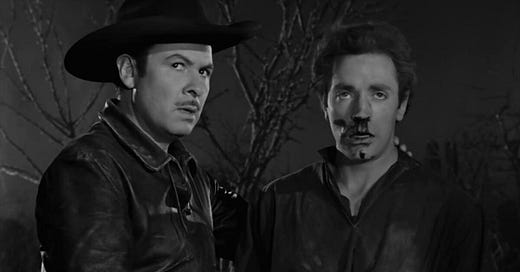



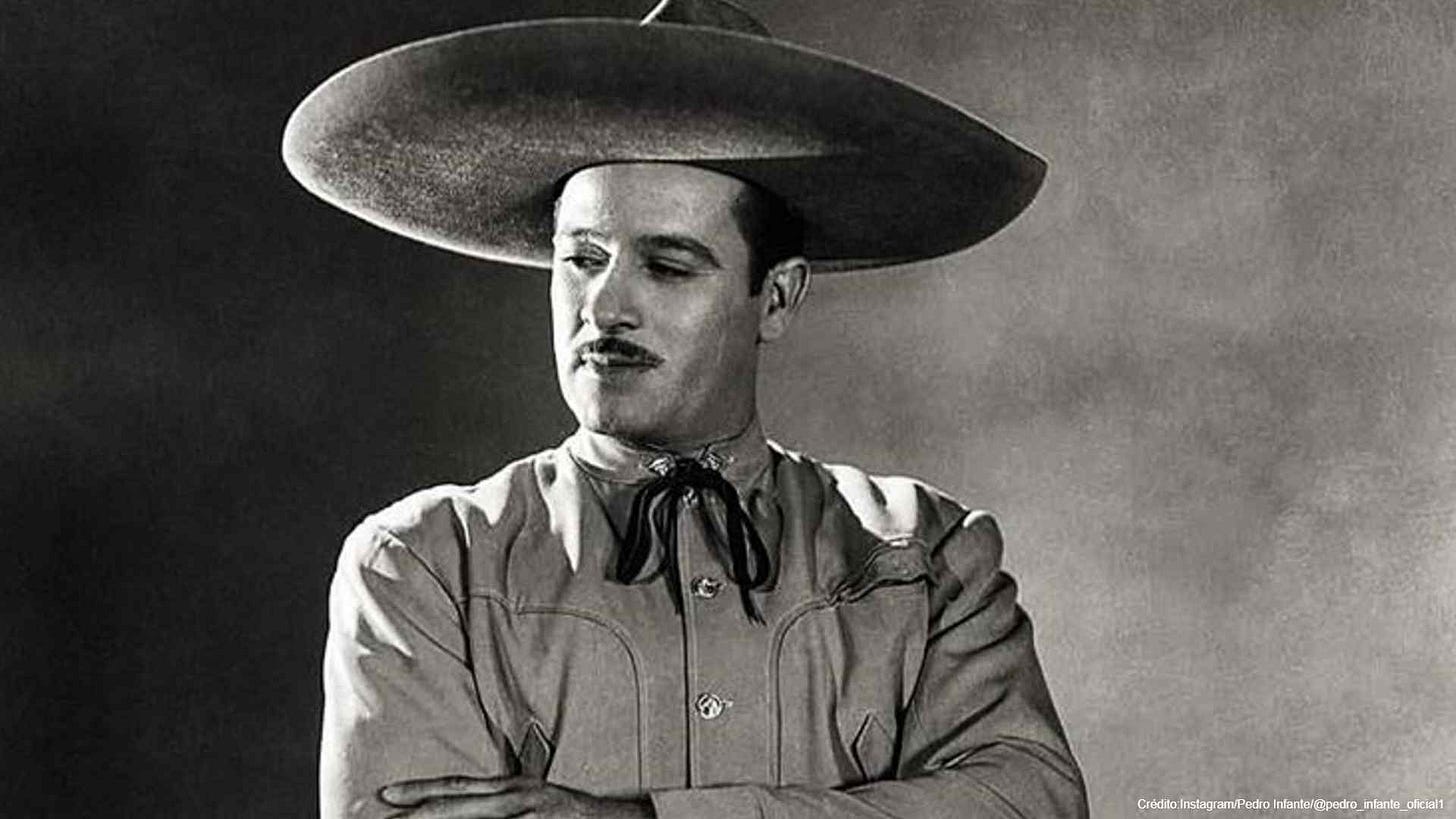
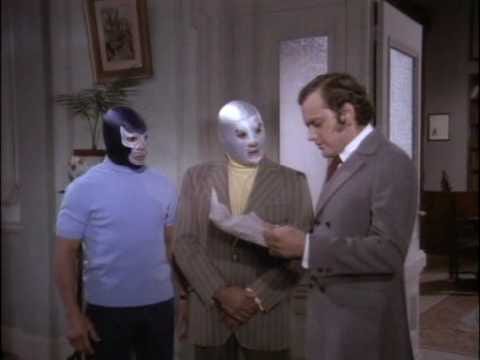
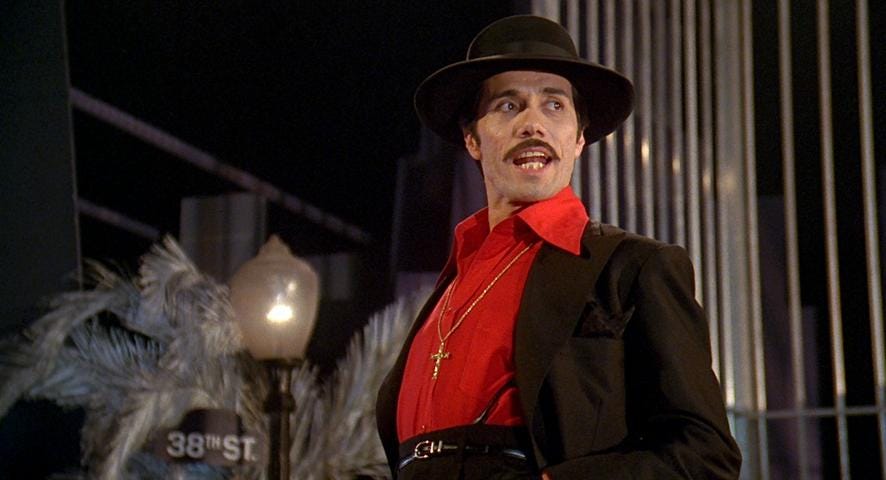
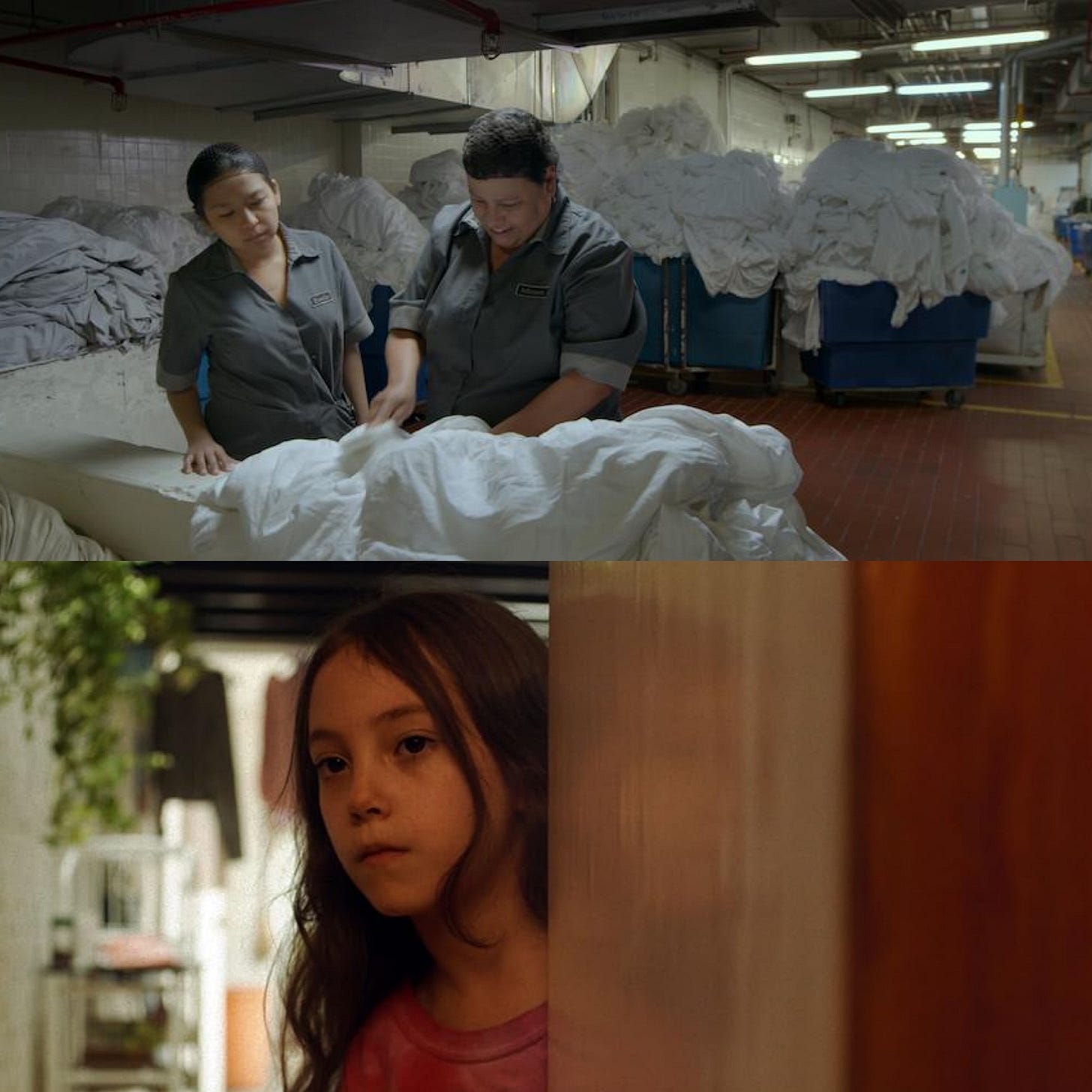
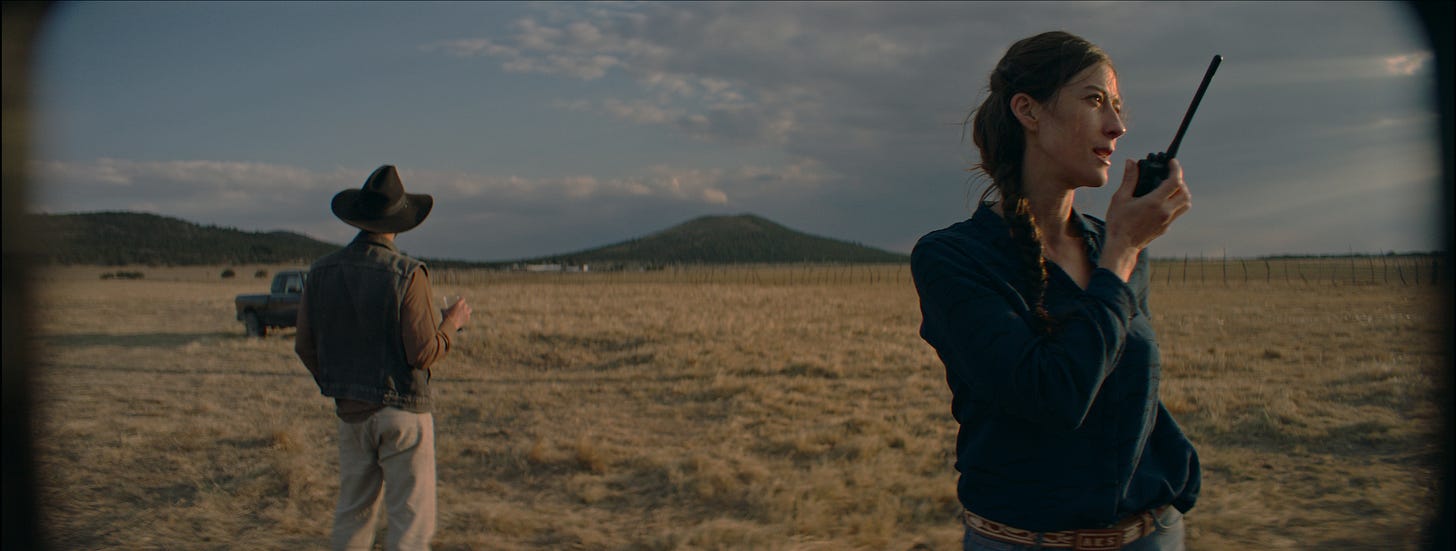
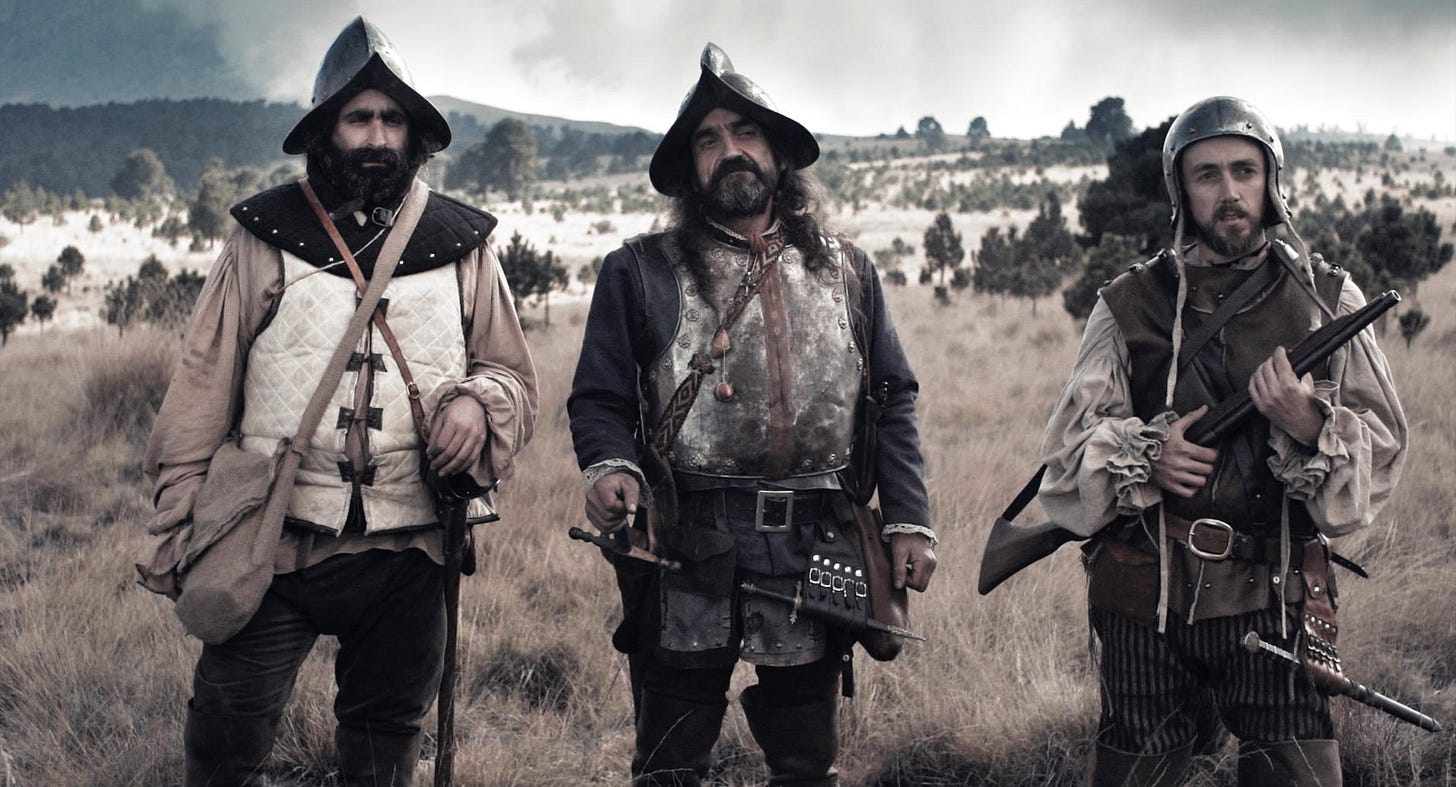
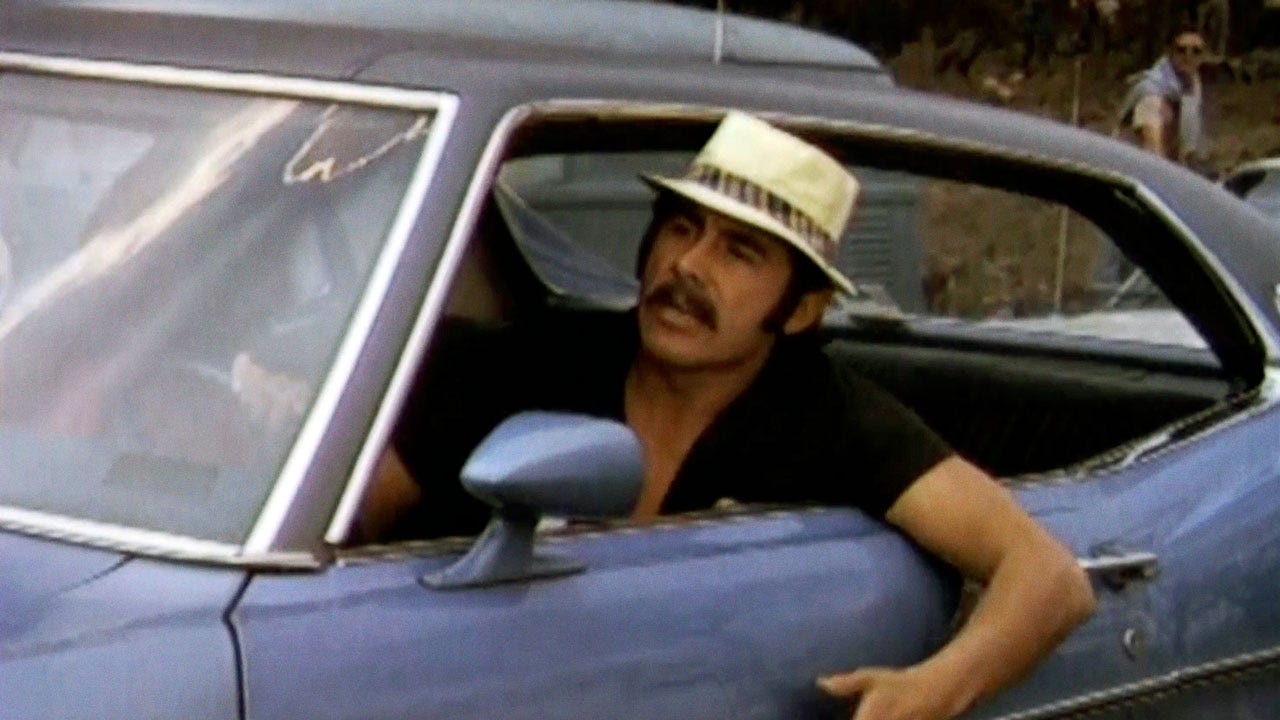
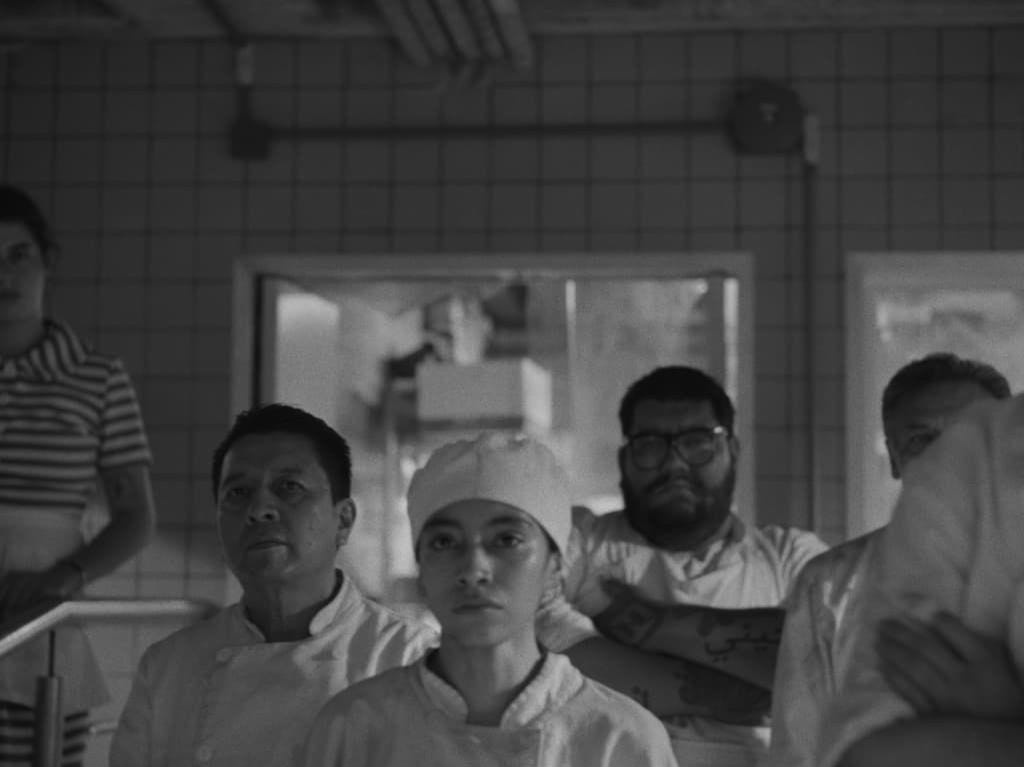
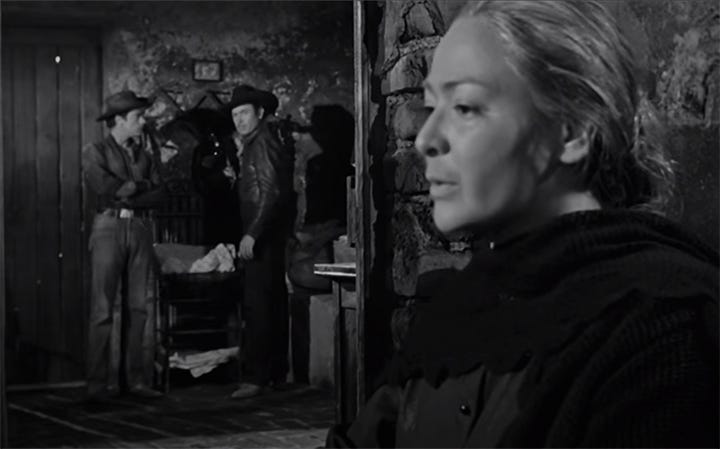
Hola, este es Pedro Infante escribiendo desde la cuenta de Christian. Estoy vivo, cabrón!